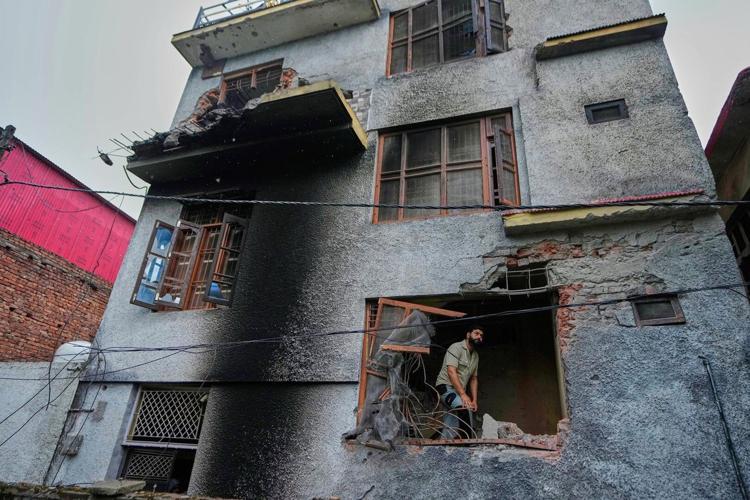SRINAGAR, India (AP) ŌĆö Poet Zareef Ahmed Zareef has watched India and Pakistan fight for decades over his homeland, the disputed Himalayan region of Kashmir.
He was born in 1947, the same year India and Pakistan became independent nations and British colonial rule ended. The two over but claimed by both in its entirety.
Now the 78-year-old worries this week’s dramatic escalation heralds yet another war.
ŌĆ£WeŌĆÖve been told that Kashmir is paradise on earth,” he said. ŌĆ£But for us, itŌĆÖs living in a permanent fear of hell. Every war has brought misery, death and destruction.ŌĆØ
His fears have only been exacerbated by the developments.
On Wednesday, , including women and children. The strikes came in the wake of an April 22 attack, when , in the India-controlled part of Kashmir.
India accused Pakistan of backing the militants who carried out the attack, a charge Islamabad denied. Pakistan has vowed to avenge the killings.
Since Wednesday, exchanges spiked across the so-called Line of Control, the boundary dividing the Indian and the Pakistani-controlled sections of Kashmir.
Militaries on both sides have mobilized. The people are scared.
A devastated border town
Indian and Pakistani soldiers guard their side of the frontier. Coils of razor wire snake around mountain foothills, by ancient villages and across fields of rice and corn. Watch towers stand on every few hundred meters (yards) and some Indian and Pakistani troops are so close they can wave to each other.
Like many places along the frontier, the border town of Poonch in Indian-controlled Kashmir is swarmed by soldiers, their barracks close to civilian homes.
Shortly after India’s strikes, Pakistani shells and bullets rained on Poonch, killing 13 civilians, including three women and three children, and wounding 44, Indian officials and medics said.
Mehtab Din, 46, and his wife were lightly injured when three shells hit their home in Poonch. Their next-door neighbor was not that lucky, he said.
ŌĆ£His two children were killed and heŌĆÖs battling for his life in a hospital,ŌĆØ Din said. ŌĆ£Leaders are safe in their homes. The brutal axe of the war they start falls on us.ŌĆØ
A shattered calm
The region saw a tentative calm in 2021, after India and Pakistan . But this weeks escalation shattered that.
Rubina Begum said early morning explosions in her village of Salamabad in the area of Uri sent her running for cover with her children.
ŌĆ£There was confusion and smoke all over. Thank God, weŌĆÖre alive,ŌĆØ she wailed, standing in front of her heavily damaged home as relatives tried to calm her.
Begum was among few left in Salamabad on Thursday. Many had fled in fear of more attacks; some houses were still smoldering.
Caught in the middle of bitter rivalry
In the Indian-controlled portion of Kashmir, tens of thousands of civilians, rebels and government forces have been killed after an armed revolt erupted against Indian rule in 1989.
India decries the rebellion as IslamabadŌĆÖs proxy war and state-sponsored terrorism. Many Muslim Kashmiris consider it a legitimate freedom struggle and support the rebel goal that the territory be united, either under Pakistani rule or as an independent country.
Zareef, the poet, said the people of the region have become ŌĆ£cannon fodderŌĆØ in the conflict.
ŌĆ£One group says you belong to us,” he said. ŌĆ£The other too says you belong to us. But at critical times, they ... punish us,ŌĆØ he said.
Kashmiris have particularly reeled after Indian Prime Minister Narendra in 2019, bringing it firmly under India’s control. Since then, the governmentŌĆÖs heavy-handed approach has largely silenced people, with .
Jagmohan Singh Raina, a 72-year-old Sikh businessman said like him, many Kashmiris feel they’ve had enough of being used in the fight between Pakistan and India.
ŌĆ£DonŌĆÖt push us further,” he said. “End this warfare and let Kashmiris live in peace.ŌĆØ
___
Saaliq reported from New Delhi. Associated Press writers Channi Anand in Poonch, India, and Mukhtar Khan in Uri, India, contributed to this report.

































